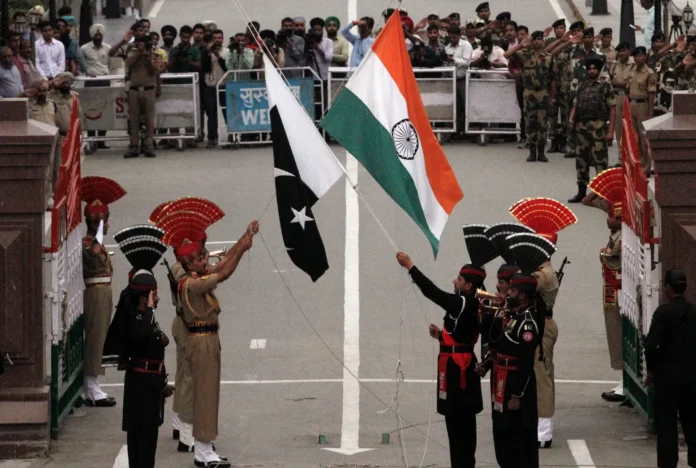Qingdao, China | June 25, 2025 — The defence ministers of India and Pakistan are set to come face to face for the first time since a military standoff in Kashmir in May 2025, as senior officials from Shanghai Cooperation Organization (SCO) member states convene for a two-day summit in eastern China, hosted by Beijing.
The summit, which begins Wednesday, is being held in Qingdao, a port city in Shandong Province, and chaired by Chinese Defence Minister Admiral Dong Jun, according to an official statement released by the Chinese Ministry of National Defense.
Historic but Tense Encounter
The Pakistani delegation is led by Defence Minister Khawaja Muhammad Asif, while the Indian delegation is headed by Defence Minister Rajnath Singh, accompanied by top military officials and diplomatic aides.
According to Indian Ministry of Defence sources speaking to Press Trust of India (PTI), Singh is also scheduled to hold bilateral meetings with his Chinese and Russian counterparts, among others.
This marks the first direct interaction between the Indian and Pakistani defence chiefs since the May 2025 flare-up in the disputed Kashmir region, which saw artillery exchanges, airspace violations, and a brief mobilisation of troops across the Line of Control (LoC).
SCO: A Platform for Dialogue Amid Tensions
The Shanghai Cooperation Organization (SCO), established in 2001, includes China, Russia, India, Pakistan, Iran, Kazakhstan, Kyrgyzstan, Uzbekistan, Tajikistan, and Belarus as full members. It serves as a regional security and economic bloc, with its Regional Anti-Terrorist Structure (RATS) headquartered in Tashkent playing a key role in joint counterterrorism coordination.
China, which holds the 2025 rotating presidency of the SCO, has themed this year’s agenda under the slogan:
“Upholding the Shanghai Spirit: SCO on the Move.”
According to the official SCO summit agenda, key areas of discussion include:
- Military mutual trust-building
- Counterterrorism and cyber warfare cooperation
- Cross-border military exercises
- Stability in South Asia and the Middle East
The Chinese Defence Ministry’s statement emphasised that the summit would serve to:
“Consolidate and deepen military mutual trust, jointly safeguard regional peace and stability, and uphold multilateralism under the Shanghai spirit.”
Nuclear Powers at a Crossroads
India and Pakistan—both nuclear-armed states and members of the International Atomic Energy Agency (IAEA)—have fought three full-scale wars, two of which centered on Kashmir, a Himalayan region claimed by both but administered separately.
The recent standoff in May led to dozens of casualties on both sides, though diplomatic channels remained open through third-party mediation, reportedly by China and the United Arab Emirates, according to sources quoted in Al Jazeera and The Hindu.
While no formal bilateral talks between India and Pakistan have been confirmed at Qingdao, analysts see the summit as a rare opportunity for strategic signaling and possible backchannel engagement.
Expert Reactions and Global Stakes
Regional analysts see the SCO summit as a critical moment. Dr. Rajeswari Pillai Rajagopalan, Director of Security Studies at the Observer Research Foundation (ORF) in New Delhi, notes:
“Even if India and Pakistan do not hold formal talks, their co-presence signals a willingness to use multilateral forums as pressure-release valves.”
A similar sentiment was echoed by Michael Kugelman, South Asia Institute Director at the Wilson Center in Washington, D.C., who tweeted:
“The SCO isn’t a conflict-resolution body. But its importance lies in facilitating indirect engagement — especially when direct dialogue is politically impossible.”
References & Sources:
- Chinese Ministry of National Defense: SCO Qingdao Summit Statement
- Press Trust of India (PTI): Indian Defence Minister’s itinerary
- SCO Secretariat Official Website: Overview of 2025 Summit Agenda
- IAEA Member States List: India and Pakistan Membership
- Observer Research Foundation (ORF): Commentary by Dr. R.P. Rajagopalan
- [Al Jazeera, May 2025]: Coverage of Kashmir standoff and third-party mediation
- [The Hindu, May 2025]: Analysis of LoC escalation
- Michael Kugelman Twitter (@MichaelKugelman): Commentary on SCO diplomacy










